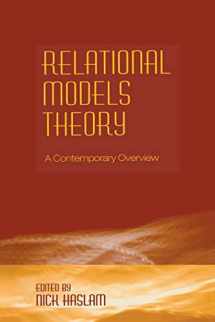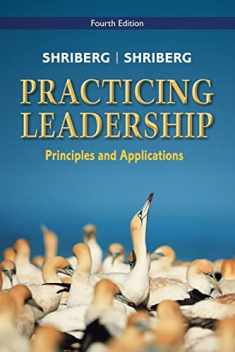
Relational Models Theory
ISBN-13:
9780805853568
ISBN-10:
0805853561
Edition:
1
Author:
Nick Haslam
Publication date:
2004
Publisher:
Routledge
Format:
Paperback
390 pages
FREE US shipping
Book details
ISBN-13:
9780805853568
ISBN-10:
0805853561
Edition:
1
Author:
Nick Haslam
Publication date:
2004
Publisher:
Routledge
Format:
Paperback
390 pages
Summary
Relational Models Theory (ISBN-13: 9780805853568 and ISBN-10: 0805853561), written by authors
Nick Haslam, was published by Routledge in 2004.
With an overall rating of 4.4 stars, it's a notable title among other
Psychoanalysis
(Psychology & Counseling, Social Psychology & Interactions, General, Psychology, Psychoanalysis, Social Psychology & Interactions, Social Sciences) books. You can easily purchase or rent Relational Models Theory (Paperback) from BooksRun,
along with many other new and used
Psychoanalysis
books
and textbooks.
And, if you're looking to sell your copy, our current buyback offer is $0.3.
Description
Relational models theory, first developed by Alan Page Fiske, an anthropologist, provides a framework for understanding the psychological bases of social behavior that has in recent years attracted the interest of a diverse and growing group of behavioral and social scientists. It proposes that human activities are structured in accordance with four fundamental models--communal sharing, authority ranking, equality matching, and market pricing--different permutations of which guide thought and behavior in every domain of social life in all cultures. Just as children are biologically programmed to learn language, so are they prepared to recognize the models, which enable human beings to plan and generate their own action; to understand, remember, and anticipate that of others; to coordinate collective action and institutions; and to make moral judgments.This book offers a critical introduction to contemporary relational models theory and illustrates the ways in which it has illuminated a wide range of interpersonal phenomena and stimulated research on individual psychology, collective behavior, and culture. Using methodologies that range from experimental to ethnographic, the authors--leading developmental, social and clinical psychologists, anthropologists, and specialists in organizational behavior and management--discuss the relational foundations of social cognition, the forms of action that create relationships in diverse cultures, perceptions of fairness and justice in families and organizations, emotions and values, moral outrage, interpersonal conflict, and emotional and personality disorders.Relational Models Theory lays out challenges to all who study interpersonal relationships and social processes in varying contexts, and points directions for future work.


We would LOVE it if you could help us and other readers by reviewing the book
Book review

Congratulations! We have received your book review.
{user}
{createdAt}
by {truncated_author}



